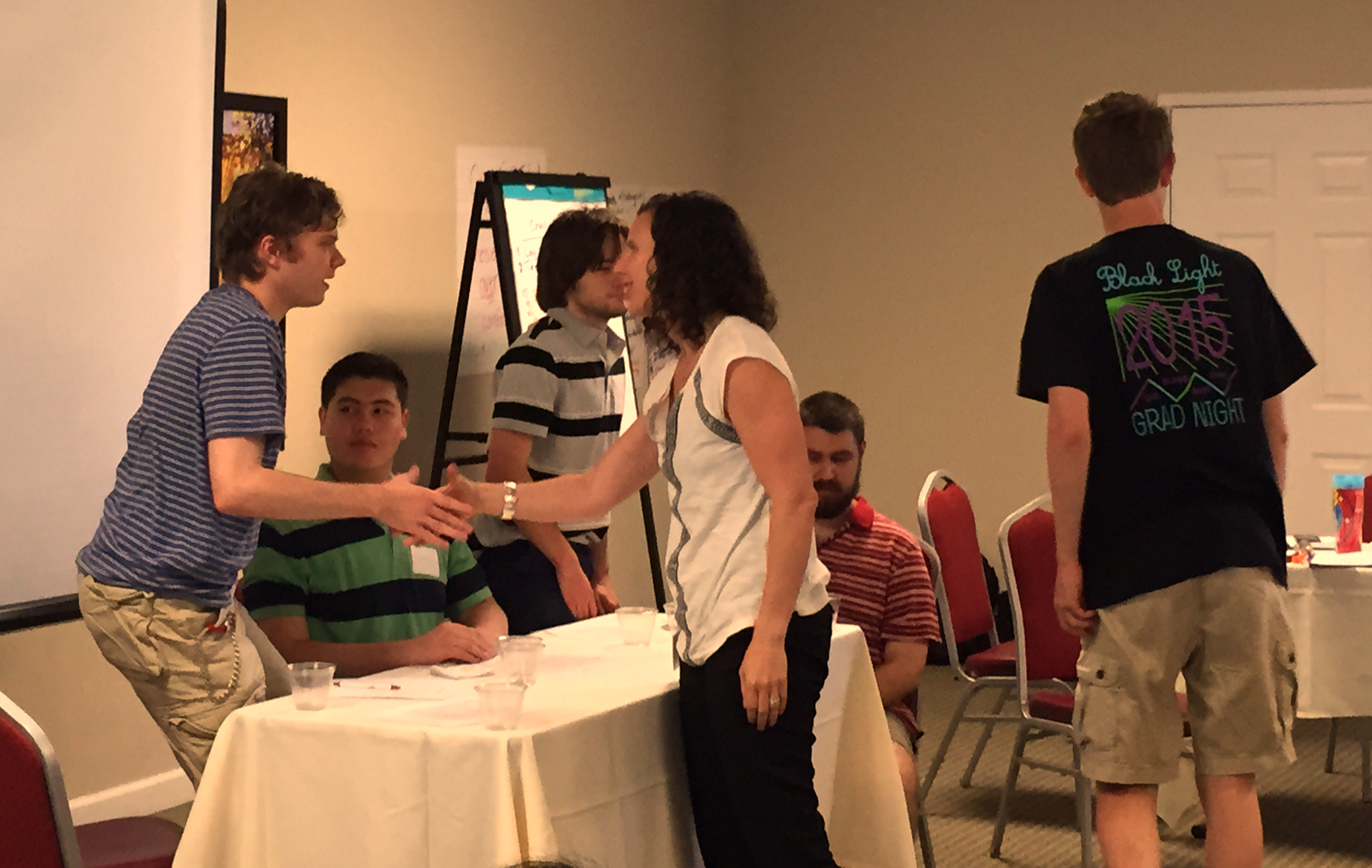Young Adults with Autism Call for Higher Expectations
 Earlier this summer, the annual meeting for researchers affiliated with the Center on Secondary Education for Students with Autism Spectrum Disorder (CSESA) included a five-person panel of young adults with autism, who spoke about challenges they faced in high school and as new job seekers.
Earlier this summer, the annual meeting for researchers affiliated with the Center on Secondary Education for Students with Autism Spectrum Disorder (CSESA) included a five-person panel of young adults with autism, who spoke about challenges they faced in high school and as new job seekers.
Their message: “Raise the bar.”
The U.S. Department of Education funded CSESA to develop, adapt, and study a comprehensive school-and community-based education program for high school students with autism spectrum disorder (ASD). In addition to scientists from FPG, researchers from six other universities collaborate with schools, businesses, families, and adolescents with ASD to build and study a high school program that supports optimal outcomes for students before and after graduation.
FPG scientist Kara Hume, who serves as CSESA co-principal investigator, said the young panelists energized the CSESA team and provided engaging insights about their high school experiences.
“They never complained about some of the complexities of high school that often create added challenges for students with autism spectrum disorder,” said Hume (shown here, thanking a panelist). “Instead, they repeatedly said they felt that expectations were too low for them, and ‘raising the bar’ was a consistent theme of their discussions.”
Hume said CSESA is committed to partnering with communities to create post-secondary opportunities for people with autism spectrum disorder. She sits on the board of Persever8, a Chapel Hill nonprofit group that offers access to technology instruction in order to prepare high school, community college, and university graduates with training for living-wage employment.
Persever8’s goals include creating opportunities in the tech sector, helping people with ASD navigate the workplace culture through job skills education, and teaching life skills to educate and prepare people for the responsibilities and demands of independent adult life.
“Some of the panelists at CSESA’s annual meeting did note that they sometimes had felt unseen in high school or didn’t want to interact with people who didn’t share their interests,” Hume said. “An additional benefit for Persever8 participants is the opportunity for them to form lasting, supportive friendships with one another.”
Hume said the CSESA panelists, one of whom is a Persever8 participant, talked about the importance of social skills—especially more sophisticated skills that went beyond a simple list of rules.
“They realized that a modest grasp of social tools didn’t make them socially fluent,” said Hume. “At the same time, these panelists actually exhibited incredible insight and proficiency with communication.”
ASD affects different people in different ways and includes many talents and strengths. Persever8 touts its participants as possessing an affinity for technology, strong visual thinking and learning skills, and the ability to concentrate for extended periods of time on repetitive activities—among several other skills employers find useful.
“For CSESA researchers, hearing the panelists was our reward for doing what we do,” Hume said. “And it reminded us yet again how much people with autism spectrum disorder have to offer our communities.”
Read more about Perver8 and view a video about the group of 8-year-olds with ASD who have been meeting regularly for more than a decade and who provided the impetus for founding the nonprofit
Contact:
Kara Hume, Co-Principal Investigator
Center on Secondary Education for Students with Autism Spectrum Disorder
Frank Porter Graham Child Development Institute
kara.hume@unc.edu
919-843-2291
FPG grants permission to publish this story in whole or in part.
DS
